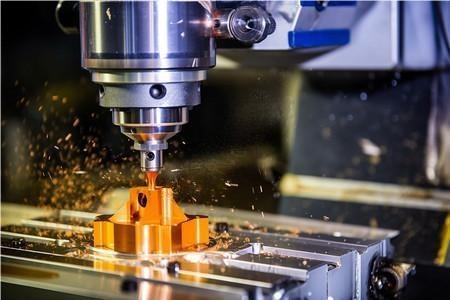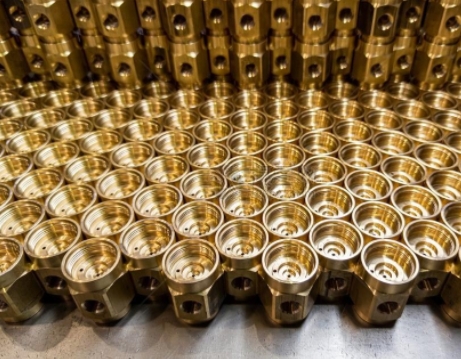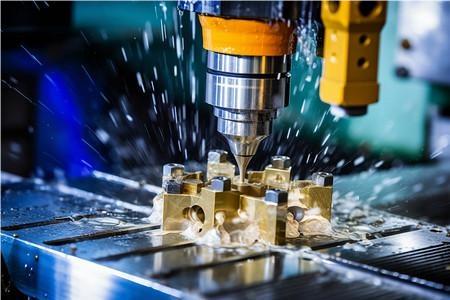CNC Machining of Brass: In-Depth Understanding of Key Considerations for Machining Brass Parts
Brass, as a commonly used metal in machining, finds widespread applications across various industries due to its ideal properties. This alloy, primarily composed of copper and zinc along with other metal elements such as magnesium, iron, and lead, exhibits excellent machining performance. This article delves into the characteristics of brass, materials required for custom brass parts, application areas of brass parts, and crucial factors to consider when selecting brass for machining.
Unique Characteristics of Brass:
Brass's suitability for CNC machining is attributed to its distinctive characteristics, including:
High Machinability: Brass's significant machinability is attributed to the presence of lead in its composition, enhancing feed rates and providing excellent machining properties, including high ductility and toughness.
Corrosion Resistance:Brass demonstrates outstanding corrosion resistance, contributing to the relatively long lifespan of brass parts. However, corrosion resistance also depends on the content of elements like iron and aluminum.
Ductility:The high copper content imparts exceptional ductility to brass, making it a preferred material for mechanical machining, allowing machinists to easily shape it into various forms.
Strength and Hardness:Brass is not only easy to machine but also possesses considerable strength. While not as strong as steel, its durability is sufficient to meet various application requirements.
Excellent Thermal Conductivity: Brass finds applications in various fields due to its outstanding thermal conductivity. Its high thermal conductivity makes it an ideal choice for manufacturing radiators, coolers, and other heat exchange equipment.
Brass Grades for CNC Machining:
Brass comes in various grades, and their different copper and zinc contents influence their application properties. Here are some common brass grades used for CNC machining and their pros and cons:
C360 (Free Machining Brass):
Pros: Easy to machine, corrosion-resistant, good tensile strength.Cons: Potential lead content issues in medical applications, sensitivity to acidic environments.
C230 (Red Brass or Nordic Brass):
Pros: Anti-zinc leaching, moderate tensile strength, corrosion-resistant.Cons: May not withstand corrosion in harsh environments.
C220 (Commercial Bronze):
Pros: Excellent corrosion resistance, good machining performance, high ductility and strength.Cons: Additional annealing may be required after exposure to harsh environments.
C260 (Half-Hard Brass):
Pros: Corrosion-resistant, good machining, moderate strength.Cons: Not suitable for applications with high strength requirements.

Surface Treatment Options for CNC Machined Brass:
Brass itself lacks a natural coating, and its natural golden surface allows machined brass parts to be used directly as finished products. However, if parts require different appearances, consider the following surface treatment methods:
As-Machined Surface: Machined brass parts typically have a bright, natural gold-colored surface, emphasizing functionality over aesthetics in most cases.
Polishing: Using grinding wheels and abrasive discs to polish the surface of machined brass parts, removing impurities and creating a smoother finish.
Plating: Utilizing electroplating to bond molecules of other metals, such as aluminum or stainless steel, onto the surface of brass parts. The plated surface is usually bright or smooth.
Brushing: Using abrasive stones to brush the finished surface, creating cross-hatch patterns.
Considerations When Choosing Brass for CNC Machining:
When selecting brass for CNC machining projects, it's essential to consider several factors. Here are some recommendations:
Machining Time for Parts: Project delivery time is a crucial factor in selecting brass grades. C360 alloy is popular for its excellent machinability and suitability for urgent projects. However, for enhanced performance, consider other grades like C230 or C220.
Manufacturability Design: Principles of manufacturability design are crucial in any machining process. While brass is easy to machine, part designs should not be overly complex to help reduce machining costs.
Application of Finished Parts: Different brass compositions have different pros and cons. Choose the grade based on the intended use of the parts, such as C230 for underground pipelines.
Applications of CNC Brass Machining: CNC brass machining processes are suitable for manufacturing various parts, including hinges, knobs, pipes, clocks, jewelry, gears, and door accessories.

Applications of Brass in Different Industries:
Brass finds widespread use across various industries due to its versatile properties:
Electrical Industry: Brass is commonly used in the manufacture of electrical connectors, sockets, wires, and other electrical components due to its excellent conductivity and machining properties.
Construction and Decoration: The aesthetic appeal of brass makes it a common material in the construction and decoration industries, used for manufacturing doorknobs, handles, and decorative items.
Mechanical Manufacturing: Due to its high ductility and corrosion resistance, brass is widely used in mechanical manufacturing, including the production of bearings, gears, and other mechanical parts.
Clocks and Jewelry: Brass's attractive golden color makes it suitable for clock manufacturing and jewelry design, used for making clock casings, jewelry necklaces, and more.
Aerospace Industry: The high strength and corrosion resistance of brass make it suitable for manufacturing aircraft components, connectors, and instruments in the aerospace sector.
Medical Industry: Brass is commonly used in manufacturing various parts for medical equipment, but attention must be paid to lead content when choosing the appropriate grade.
How to Determine If Brass Is Suitable for Your CNC Project:
CNC metal machining involves the use of various metals as processing materials, and selecting brass requires ensuring its properties align with project requirements. Seeking expert advice for more professional guidance is a wise choice.
Dongguan Haoxiang Prototypes with its experienced team, can provide professional advice on CNC machining. We specialize in brass machining processes, offering milling, turning, and electrical discharge machining services to ensure the production of high-quality products. Contact us anytime for a quote on brass machining services.

